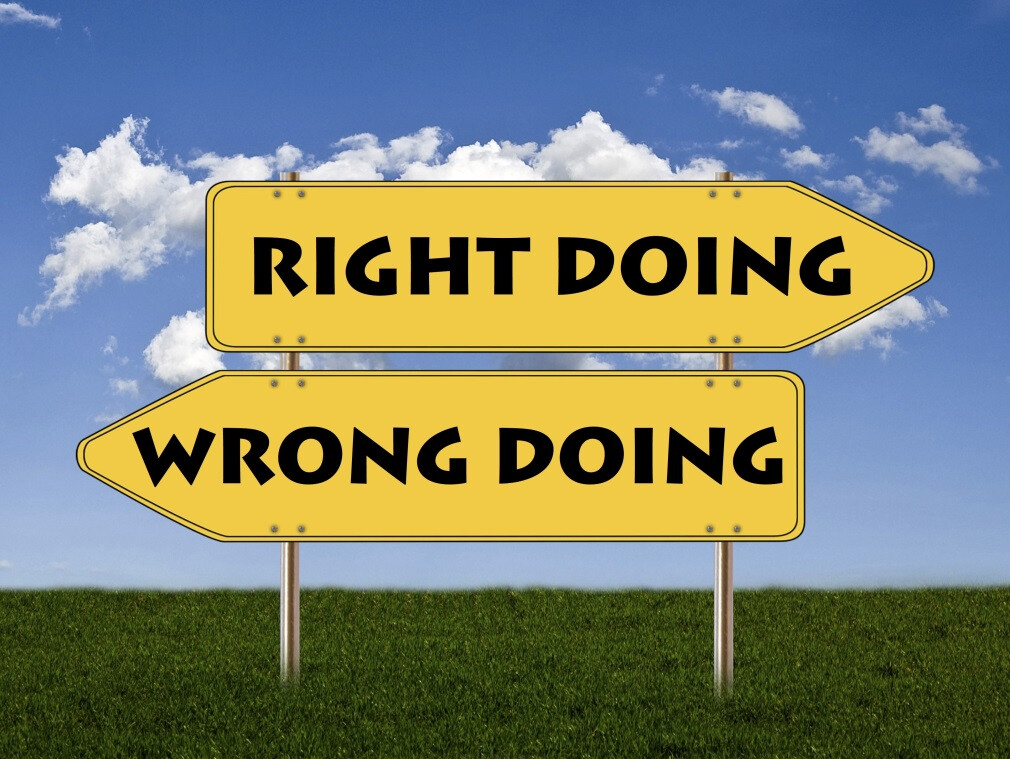Development of Conscience

While children are far more resilient than adults, which is the beauty of their innocence, the impact of how our world works is having an effect on our children. I am concerned for their conscience development.
It is a normal part of child development to fear getting in trouble. That fear is healthy as it is an indicator of conscience. I am sure we can all relate to the “pit in the middle of your stomach” feeling when you anticipate you have done something wrong or did do something wrong and you wait to be held accountable. We should feel this. There are typically two responses: lie to avoid getting in trouble or tell the truth and own the behavior. I am seeing a third response rising: apathy. In order for conscience to develop, an individual has to learn what it is that is wrong, understand why it is wrong, and then resign not to do it again based on the experience, struggle, mistake, consequence, or disappointment. Children have to experience things in order to develop a sense of right and wrong. To prevent the experience, steals a child’s opportunity to gain wisdom and resilience. While I am used to children lying to get out of trouble, the lie usually catches up to them. What I am not used to is children not caring one way or the other. This is what I mean by apathy. Even when held accountable, some do not care. I am not certain where that is coming from, but I am certain that it is troublesome for their souls.
How do I see this? It is the code of silence. Our children are becoming desensitized to what is really right or wrong because the narrative of what is right or wrong has been blurred. Bystanders record bad behavior and post it rather than stop bad behavior. When asked for information in order to hold offenders accountable, the response is nothing. Fame is won by getting recognition for or from participating in bad behavior. The “bad guys” are getting away with it and that is becoming praiseworthy for some. Justice is not served. Our children are seeing bad behavior and poor conduct as spotlight worthy rather than disgraceful. Rather than seeing examples of forgiveness, love, and mercy they are seeing shame, disrespect, and dishonor as glorifying traits. I am truly worried. Therefore, I am making an appeal: We need to work together to rebuild lost socialization skills. We need to work together to strengthen our students’ moral compasses. Our students are struggling with empathy, responsibility, and respect for self, others, and their surroundings. We cannot assume that they know how to properly conduct themselves. It is quite possible that our children do not know or are not sure of what is right or wrong. We have to take the time to teach and give words to experiences. Indeed, time has been stolen away from them to learn very valuable lessons. Contact with others has been stunted for two years! I don’t anticipate that it will take long to regain these skills but we must do it together. It is quite possible that children are not aware if something they do is good or bad/right or wrong unless we give voice to it. There is a time to teach and a time to discipline. Both are important.
Let all of us speak the truth to our neighbors, for we are members of one another. Be angry but do not sin; do not let the sun go down on your anger. Thieves must give up stealing; rather let them labor and work honestly with their own hands, so as to have something to share with the needy. Let no evil talk come out of your mouths, but only what is useful for building up, as there is need, so that your words may give grace to those who hear. And be kind to one another, tenderhearted, forgiving one another, as God in Christ has forgiven you. Therefore, be imitators of God, as beloved children, and live in love, as Christ loved us and gave himself up for us. (Ephesians 4:25b-26, 28-29, 32; 5:1-2ab)
